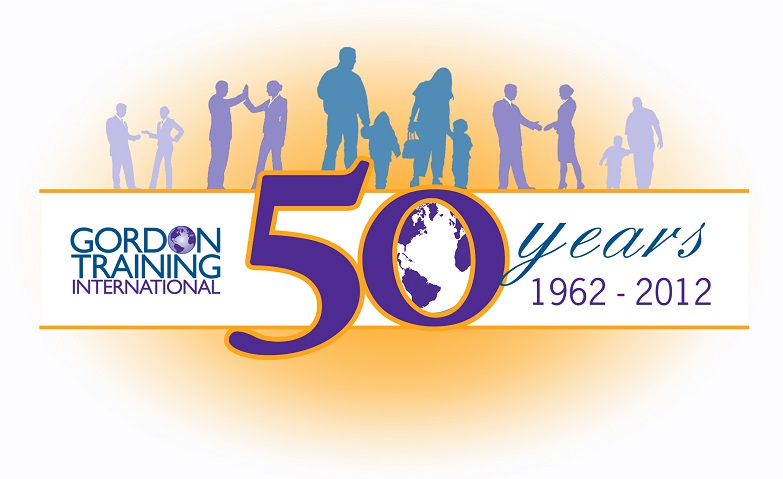Roadblocks II -- Parent Owns Problem
What words do you associate with CONFRONTATION?
If you’re anything like the parents I work with, your list includes:
- strife
- anger
- avoid at all costs
- mean
- fighting
- stressful
- screaming
- blaming
Why is confrontation so negative for most of us?
Well, for one, it certainly is often done using You-Message labels like “selfish,” “lazy” and “inconsiderate.”
Many times, it gets “historical” as we unload stored up feelings and resentments – "Well then, since you’ve brought this up, what about the time you did that?"
Often, we use imprecise and unclear wording such as “Why did you do that?” or “Watch out, you idiot!” instead of “Ouch!! You’re standing on my foot!”
Sadly, many of us have grown up with ineffective role models – maybe we have one parent who’s passive and one who’s aggressive. Or perhaps we have two passive-aggressives.
If conflict is pretty much a sure thing as long as we are breathing, shall we try to finesse a different way to confront?
The first step is to reflect on what we currently do when we find ourselves in the Parent Owns Problem box: when our kids' unacceptable behavior is impeding us from meeting our needs.
It is truly humbling but, as you may have read in my last post -- Roadblocks I - Child Owns the Problem -- our patterning is just to use a heck of a lot of Communication Roadblocks instead of helping our children or confronting them with good results.
How about this scenario?
You have arrived at the airport to make a trip on your own with the kids. As soon as the taxi stops, they hop out excitedly with their backpacks and run towards the entrance, leaving you with the luggage in the trunk.
As we scroll through some (familiar?) responses, contrast them with Dr. Thomas Gordon’s definition of effective confrontation:
1. Ordering, Directing
"Guys! Come back RIGHT this second and help me!"
2. Warning, Admonishing, Threatening
"If you do that to me again, we can just forget about another trip."
3. Exhorting, Moralizing, Preaching
"You should be more considerate, especially at your age!"
4. Advising, Giving Solutions or Suggestions
"Both of you, do something! Jack, how about you take the big ones? Sara, why don’t you help get a cart?"
5. Arguing, Lecturing, Teaching, Persuading with Logic
"Think about it, you two! I’m one person and there are three big suitcases. How is that going to work?"
6. Judging, Criticizing, Blaming
"You never help me. You’re in your own little worlds and don’t think of anyone but yourselves."
7. Praising, Agreeing
"I know you didn’t mean it but I don’t expect this to happen again from my good little angels."
8. Name-calling, Labeling, Ridiculing, Shaming
"Hello! Calling all selfish, little kids to their mother’s rescue!"
9. Interpreting, Analyzing, Diagnosing
"You purposefully left me behind there to pay the taxi driver AND deal with the bags. I think you are intentionally trying to humiliate me."
10. Reassuring, Sympathizing, Supporting
"You guys just keep forgetting to be aware of your surroundings. You must have a lot on your mind."
11. Probing, Questioning, Interrogating
"Really? REALLY?? Did you stop and think for a moment how the luggage was going to make it to check-in? What would have happened if I too just walked into the airport with nary a care in the world?"
12. Using Sarcasm, Withdrawing
"Thank you very much for all your help, you two. I think you deserve 'Most Helpful Kids of the Year' designation."
Silence. "What's wrong, Mom?" Silence. "Are you mad at us?" Silence. "Sorry, we should have helped you." Silence.
Ouch. Double ouch.
When we role-play a similar scenario in class, participant responses as the children run the gamut. Invariably, they include the apologetic and compliant -- “Oh, sorry!” We take a moment to recognize that this being cowed easily comes at a cost: resentment and, perhaps later, diminished capacity to resist strong peers who pressure around less savory issues, like drugs or sex.
And then there are the parents who fight fire with fire, even if only to mutter under their breath:
- “I will not!”
- “I am NOT inconsiderate!”
- “Ok, geez! You don’t have to yell!”
- “You’re not perfect either!”
- “I hate you!”
- "What? You never make mistakes?"
The problem with Roadblocks is that they are all blameful You-Messages that shift the focus from I have a problem to You have a problem:
There’s something wrong with you -- you’re bad and inconsiderate to have caused me this problem.
You’re too dumb to figure out how to help me so I need to threaten or order you.
Your needs don’t matter. How dare you think about yourself?
Moreover, some of the indirect messages model sneaky communication -- If I confront you directly, you might not like me. Indeed, the hints might be so subtle that the child may not catch onto your meaning!
The upshot is that the child may feel shamed, blamed or guilty for asserting his own needs in a simple forgetful moment of exhilaration: Yippee -- We're on vacation!!!!!!!
As an antidote, Dr. Gordon devised a three part Confrontive I-Message that does so many things for the parent-child relationship:
- Lets parents be people, with real vulnerabilities, feelings, needs
- Models strongly what it means to be congruent (what you feel on the inside is what you express to others)
- Guides parents in reconceptualizing their children’s motivations -- rather than selfish and lazy (and doing something TO their parent-victims), children are just doing something FOR themselves to meet valid needs
- Enables children to see their parents as open and honest
- Gives kids the chance to initiate behavior out of consideration for their parents’ needs
Now, raise your hand if your mother and father used Confrontive I-Messages on you when they wanted you to stop sprinkling Rice Krispies on the carpet or to return the hair dryer to its rightful place.
I don't see many hands up. Sigh. No wonder this is hard. We are counteracting years of Roadblock-modeling. So remember the self-forgiveness when we fall back into our old conditioning!
And when you falter, consider holding up a finger to your child and saying: "Wait, I want to check something before I confront you!" And then run like mad to your notes, the P.E.T. book or this blogpost. And why not? You will now have that child's attention and, what's more, his appreciation of your transparency and effort.
The more you practice the easier it will be to come up with something like this:
"Jack and Sara! When you leave without taking your suitcases (behavior), I feel frustrated and overwhelmed (feelings). It takes a lot longer for me as one person!" (effects)
Even so, as Dr. Gordon says, sending a Confrontive I-Message does not guarantee that "everything will be sweetness and light." (page 136) If a child becomes defensive or resistant, it is wise to Shift Gears to Active Listen, and then reassert when the child is ready again to hear you.
Another sigh. Hey, you've never caught me saying P.E.T. is easy.
Change starts, though, with a simple decision and firm commitment. We've got your back as you strive to communicate in new ways that better serve you, your child and your relationship together. You will love the results.
“[A]dults often underestimate the willingness of kids to be considerate of adults’ needs, once they are honestly and straightforwardly told how others feel. Kids can be responsive and responsible, if only grown-ups take a moment to level with them.”
Thanks for reading! To find out more about Confrontive I-Messages, check out one of the following posts:
I Am Not Your Servant! -- How do we get kids on board to help us around the house?
But It's My Bedroom! -- Where does the messy room issue fall in the Behavior Window?
So . . . What About Anger? -- Explore what's underneath your anger in order to formulate a more powerful Confrontive I-Message
The Assertive New Me! -- Class practice on a real-life scenario helped me realize just how far I've come
3 Ways to Confront Really Little Ones -- Confrontive I-Messages tweaked for the baby & toddler set
Credits: Roadblocks image (http://cdnph.upi.com/sh/th/i/UPI-1901427822388/2015/14278227798161/Police-Chicago-robbers-use-fake-roadblocks-to-trap-motorists.jpg); Conflict quote (https://www.pinterest.com/pin/208713763957983306/)







